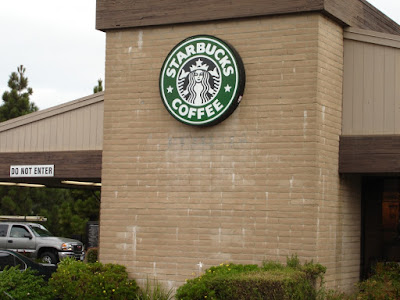Reclaiming The Public Sphere
That Starbucks, Costa and Pret are everywhere in the neighbourhood, offering us a standard experience - of space, coffee and everything - is signalling more than just coffee: This is about what we use public spaces for and how we use them. They are an instrument to create our identities.
Imagine the morning coffee, not just its smell but also standing in the long queues at or by the station. The act of standing there is being part of a civilisation, which, despite its currency, seems to have been going on forever. This is being part of the office crowd, being busy, being hard-working, being on the path of, if one is not already, successful. The carefully crafted and branded paper-cup, with the cap and the holder, all parts of being modern, a fragment of our daily, and perennial, experience.
But, more so, it is the sitting down experience, laptops everywhere, each table a small universe of start-ups and ideas, napkins specially drafted for business models, and also, some permanent residents that seem to live on specific tables all the time. If the acts of standing on queues were the membership of a work-bee universe, the afternoon congregation is a step-up, the celebration of new creation.
These are great good places, a third sphere outside work and home, where connections and creations can happen. But they are, as I notice, strangely homogeneous, orderly and disconnected. In their branded format, they just bring work to the street level, arranging themselves in cubicles of imagination. Their claims of inclusiveness are reinforced by the exclusiveness of the claim, the branding defining the sphere and content of the imagination, the freedom delimited by the membership of a kind. The homeless, the refugee and the old, the tiresome people that dot our public spaces, fall away as we step inside, the strangely neat and curated free spaces of the coffee universe.
For me, the branded coffee shops represent one key conflict of contemporary life - that between the professional and the political. It is an encroachment of the industrial, orderly and urban into the sacred space of creative imagination, the limiting of cross-spectrum conversation to a branded monotony, and the march symbols of the commercial trampling the cooperative and congenial. They represent a model of exclusive-connective, a kind of social where speaking to the people on the next table is frowned upon or forbidden, a kind of fraternity where no-one should know no-one outside the context of the immediate. It is all that professional should be - arranged, temporal and unobtrusive, based on an abstract commitment of interest - and against the spontaneity, existential and engaged political commitment of value and self.
These spaces shape the contemporary experience, however, not just through our daily routine, but in defining the language: Television studios organise Coffee with Celebrities and Political Leaders, abandoning their firesides, now Talk with Tea. The existence of them, everywhere, and the message, in everything, look to wean us away from what we inherently are - political. A lot indeed can happen over coffee, as a chain claims: The message, 'Be the change you wish to see in world', stands to mean personal advancement, only that.
The final point, therefore, a creative universe is not defined by its symptoms - coffee shops - but its content and experience. All those claims of flat white universe of the London Start-Ups is perhaps a bit premature, too fuelled by cheap capital and mindless valuations, too embedded in a privileged world-view aimed at cynical manipulation of third world aspirations. The true creative turn may start with reclaiming the public sphere, and the battle is perhaps with the make-believe universe with creativity that we got accustomed to.


Comments